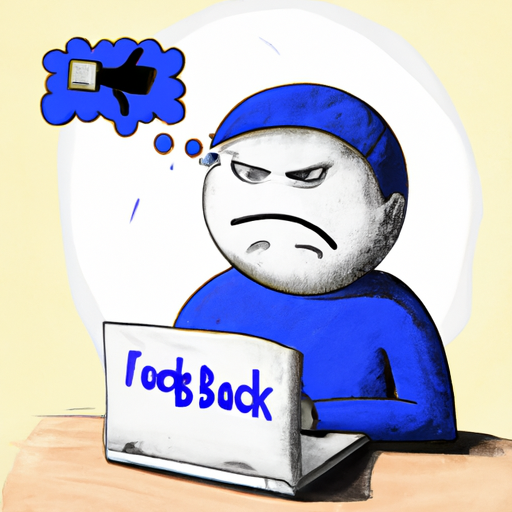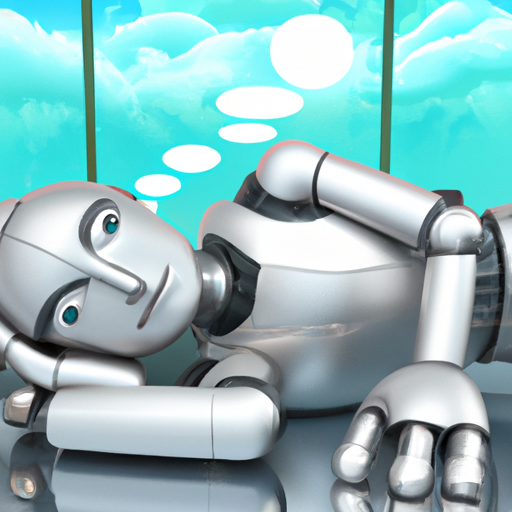Will Chat GPT Replace Developers?
ChatGPT, a natural language processing (NLP) and code generation tool, is gaining traction as a potential replacement for developers. Developed by OpenAI, ChatGPT is a deep learning system capable of generating human-like conversations and writing code. It can be used to automate certain tasks that were previously done manually by programmers.
ChatGPT is powered by GPT-3, the latest iteration of OpenAI’s language model. GPT-3 is an autoregressive language model that uses deep learning algorithms to generate human-like conversations and writing code. It has been trained on a massive amount of data and is able to generate text that is indistinguishable from human-written text.
In addition to writing code, ChatGPT can also assist developers with debugging and testing their applications. It can recognize errors in code and suggest possible fixes, saving developers time and effort. ChatGPT also has the capability to generate automated tests for applications, allowing developers to get quick feedback on their code.
The potential of ChatGPT has sparked a debate about the future of the software development industry. Some argue that it could lead to fewer jobs for developers, while others believe it will create opportunities for more efficient development workflows. Regardless of the outcome, one thing is certain: ChatGPT will have a profound impact on the software development industry in the coming years.
Contents
What is ChatGPT?
ChatGPT is an artificial intelligence (AI) language model developed by OpenAI, a research laboratory specializing in artificial general intelligence. It is designed to generate natural sounding human-like responses to questions asked in natural language. ChatGPT has been trained on a large amount of text, including conversations, books, and Wikipedia articles, and has been shown to be capable of understanding context and generating coherent answers. It has been used for tasks such as summarizing conversations, generating stories, and answering trivia questions. ChatGPT also works well in multi-turn dialogue settings and can generate responses that are both accurate and interesting.
ChatGPT has attracted the attention of many AI researchers, who are using it to explore the potential of natural language processing (NLP) and natural language understanding (NLU). It has been used to create conversational agents that can hold conversations with humans, as well as virtual assistants that can answer questions related to a variety of topics. Other potential applications include automated customer service agents, automated chatbots for websites, and voice assistants for virtual reality systems.
In addition to its conversational abilities, ChatGPT can also be used as a tool for generating text by using its predictive capabilities. This could be useful for creating summaries of conversations or stories, or for writing code or webpages. ChatGPT’s applications are still being explored and developed, but it is already showing great potential in areas such as natural language processing and understanding.
ChatGPT Skills
ChatGPT has demonstrated impressive abilities in the field of natural language processing (NLP). AlphaCode, a natural language-based AI system developed by Microsoft, has been praised for its ability to generate impressive results on tasks like summarizing text and generating code from natural language. Its skills have been recognized by AI scientists as a breakthrough in the field of NLP.
ChatGPT is able to understand complex programming concepts such as loops, functions, classes, and data structures and is capable of generating code from natural language instructions. It can also understand nuances such as the difference between a for loop and a while loop. In addition, ChatGPT can generate code for popular programming languages such as Python and JavaScript.
ChatGPT can also be used for more mundane tasks such as writing boilerplate code or editing existing code. This can reduce toil for developers who may be bogged down with tedious tasks or struggling to find the best solution to a coding problem. ChatGPT’s impressive abilities have the potential to revolutionize the industry by streamlining the coding process and allowing developers to focus on more creative tasks.
What Can ChatGPT do?
ChatGPT is a prototype artificial intelligence chatbot developed by OpenAI which specializes in dialogue. The chatbot is a large language model, trained on a variety of datasets and is capable of producing answers to certain questions and tasks. It uses a powerful natural language processing (NLP) system and has the ability to generate answers that sound like they have been written by a human.
ChatGPT can provide answers to specific questions, such as those related to math and grammar, as well as more general inquiries. Additionally, the chatbot is able to take complex conversations and produce natural language responses. This makes it ideal for customer service tasks, such as answering customer inquiries or providing help with product information.
Apart from providing answers, ChatGPT can also be used for automated customer service tasks such as setting up appointments or providing product recommendations. The chatbot can also be used for text classification and sentiment analysis, which can help businesses understand how customers feel about their products or services.
ChatGPT is also capable of performing simple tasks such as fact-checking, summarizing articles, or creating summaries of conversations. Finally, the chatbot is able to generate text from user input, enabling it to write stories or generate new ideas.
Overall, ChatGPT has proven to be a powerful tool for businesses looking to automate certain tasks and improve customer service operations. While it may not replace human developers anytime soon, it can certainly help reduce time spent on mundane tasks and free up resources for more creative endeavors.
Limitations of ChatGPT
Despite its impressive capabilities, ChatGPT has certain limitations that must be taken into account when considering its applications. Chief among these is the fact that ChatGPT is not yet able to develop entirely new software or systems. It is also not able to create complex logic or algorithms, nor can it identify subtle nuances in communication.
ChatGPT’s current capabilities are limited to automating existing processes and tasks. This means that it can be used to speed up and simplify mundane tasks, but it cannot be used to develop entirely new software or systems. Furthermore, ChatGPT has difficulty understanding context and recognizing subtle nuances in communication. This means that it is not well suited for tasks that require a deep understanding of language or communication.
In addition, ChatGPT has difficulty dealing with large databases of information or making decisions based on incomplete data. This means that it cannot currently be used for complex data analysis or decision-making tasks. Human programmers and developers remain essential for many of these tasks.
In summary, while ChatGPT can be a useful tool for simplifying mundane tasks, its current limitations mean that it cannot replace programmers and developers entirely. Human programmers remain essential for developing new software and systems, as well as making decisions based on incomplete data or complex data analysis.
ChatGPT vs Google Simple Search
In the previous sections of this blog post, we have discussed ChatGPT, its skills, and what it can do. Now, we will compare ChatGPT to Google in a simple search and discuss its potential impact on the industry.
Google is the world’s leading search engine, allowing users to quickly and easily find information on the internet. It has been a staple for web searches for over twenty years, and continues to be trusted by millions of users worldwide.
ChatGPT, on the other hand, is a language model powered by artificial intelligence. It can engage in conversation and generate natural language responses to user queries. Unlike Google Simple Search, ChatGPT is not limited to searching for facts or webpages; it can also provide advice and suggestions based on its understanding of context.
However, it should be noted that ChatGPT’s search capabilities are limited compared to Google’s. For example, it cannot return results from multiple sources like Google can. Additionally, it is not yet capable of understanding complex searches or queries that require multiple steps or input from the user.
Despite these limitations, ChatGPT could still have a significant impact on the industry if it were to replace Google Simple Search. For one thing, it could free up developers’ time by taking over mundane search tasks. Additionally, if its capabilities improve over time, it could even allow businesses to provide more tailored customer experiences.
Ultimately, only time will tell if ChatGPT will replace Google Simple Search as the world’s number one search engine. However, with its potential to revolutionize how people find information online, it is certainly worth keeping an eye on this AI technology as it continues to develop in the future.
ChatGPT’s Impact on the Industry
ChatGPT is having a significant impact on the industry, as it has the potential to replace certain aspects of programming by automating mundane tasks. This could have a variety of implications in the industry, from reducing the amount of labour required to complete certain projects, to making larger projects more achievable. In addition, ChatGPT has the potential to make software development more accessible to a wider audience, as it could enable non-programmers to use its AI capabilities to create code.
However, ChatGPT is not a replacement for software engineers and developers. Its capabilities are limited and it cannot currently be used for complex tasks or projects. Furthermore, there are other areas where ChatGPT is unable to compete with experienced programmers and software engineers. For example, while ChatGPT can generate code quickly and accurately, it can’t provide the same level of insight into user experience or debugging that an experienced programmer has.
The implications of ChatGPT for the industry go beyond simply replacing certain programming tasks. It could also help companies save money by automating certain processes that software engineers would have had to do manually in the past. For example, ChatGPT could be used for writing documentation and generating test cases, which would significantly reduce the time and resources required for such tasks.
ChatGPT’s impact on SEO is also worth noting. The technology can help companies identify keywords and phrases that are effective for their website’s visibility on search engines, potentially helping them rank higher in results pages. Additionally, ChatGPT can help companies optimize their websites by suggesting changes in coding structure and providing feedback on content optimization strategies.
Overall, while ChatGPT cannot replace software developers and programmers entirely, its capabilities are still significant enough to have a major impact on the industry. It can save companies time and resources while also helping optimize their websites and increase visibility on search engine results pages.
The Future of ChatGPT
The Future of ChatGPT will be determined by its ability to learn and adapt to different environments. In the near future, it is expected that ChatGPT will continue to improve its accuracy and efficiency when it comes to tasks like natural language processing, machine learning, and data analysis. As it grows in sophistication, ChatGPT may eventually be able to replace developers for certain tasks.
However, there are still many areas of programming and development that require human input. ChatGPT cannot provide the same level of creativity or problem solving as a human developer. ChatGPT is also limited in its ability to understand complex concepts or more abstract ideas.
In addition, the cost of using ChatGPT is often prohibitive for many businesses. As a result, it is unlikely that ChatGPT will replace developers entirely. Instead, it is more likely that developers and ChatGPT will work together in the future, with developers using ChatGPT as an aid to speed up the development process and complete mundane tasks faster.
ChatGPT is already being used by many companies to automate certain tasks or reduce the amount of manual coding required. As its capabilities continue to expand, it is expected that more businesses will utilize its capabilities in their development processes. In the future, a combination of human-led development processes and automated algorithms driven by ChatGPT could become the norm for coding and software engineering.
Conclusion
In conclusion, ChatGPT has shown its potential to assist with tedious and repetitive tasks in software development, saving time for developers. While it is not likely to replace developers completely, it can be a useful tool for developers to speed up the development process. Although ChatGPT is still in its early stages, AI scientists are optimistic about its future potential and believe that it could become even more advanced over time. As of now, ChatGPT still has a number of limitations and cannot match the critical thinking and creativity of a human programmer. However, as AI technology advances, ChatGPT may eventually be able to develop more complex skills and capabilities that could be useful in software development.
Questions & Answers
Questions & Answers around ChatGPT have been raised in recent months. With the emergence of this AI language model, many have wondered if ChatGPT will replace software engineers and developers. The answer to this question is a resounding no.
ChatGPT is a tool that can assist with certain tasks, but it cannot replace software engineers and developers. It is not an all-knowing AI, and it has been known to give wrong answers.
However, ChatGPT does have impressive skills that can be helpful to software engineers and developers. It has been able to understand complex language models, generate natural responses, and even answer questions that require domain knowledge.
The impact of ChatGPT on the industry is still uncertain. While some are hopeful that it could provide assistance to software engineers and developers, others are worried that it could take away their jobs and replace them with AI technology.
It is important to note that ChatGPT is still in its early stages of development, so the future of this technology is still unclear. As more research and development is done, the potential of ChatGPT and its impact on the industry may become more clear.
References
https://www.quora.com/Will-ChatGPT-replace-programmershttps://christianheilmann.com/2022/12/23/chatgpt-will-not-replace-programmers-but-search-engines-should-be-worried/
https://medium.datadriveninvestor.com/is-chatgpt-going-to-replace-programmers-b1c80fcc61e3
https://www.fortressofsolitude.co.za/will-chatgpt-replace-programmers-someday-many-fear-it-actually-could/
https://www.reddit.com/r/ProgrammerHumor/comments/105utvq/chatgpt_will_replace_programmers_is_the_new_my/
https://levelup.gitconnected.com/can-chatgpt-replace-programmers-what-are-chatgpt-openai-limitations-c87577c8e957
https://devops.com/will-chatgpt-replace-developers/
https://medium.com/@internetpreneur/why-chat-gpt-will-not-replace-programmers-e6f33e02618
https://www.techtarget.com/searchsoftwarequality/news/252528379/ChatGPT-writes-code-but-wont-replace-developers
https://www.forbes.com/sites/bernardmarr/2023/01/23/how-chatgpt-and-natural-language-technology-might-affect-your-job-if-you-are-a-computer-programmer/
- Bias in ChatGPT: ‘Very hard to prevent bias from happening,’ Experts Say - February 20, 2023
- Will Chat GPT Replace Google? - February 20, 2023
- Will Chat GPT Replace Developers? - February 20, 2023



